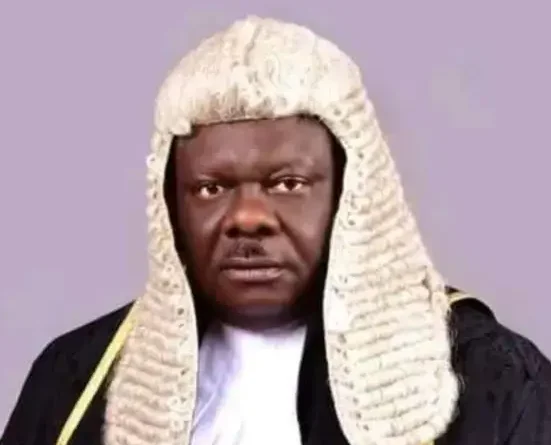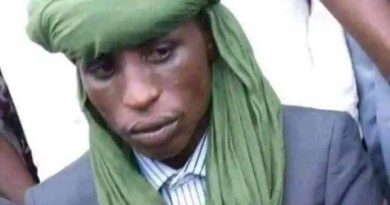EFCC Vs Yahaya Bello: Controversy Unnecessary, Agency Needs To Follow Rule Of Law, Says Former AGF, Aondoakaa
Nigeria’s former Minister of Justice and Attorney General of the Federation, Michael Aondoakaa, has advised the Economic and Financial Crimes Commission (EFCC) to follow due process in its handling of the investigation of former Governor of Kogi State, Yahaya Bello.
Giving a background into the ongoing controversy surrounding the matter, Aondoakka noted that the EFCC had made an error by including Bello in a charge relating to events predating his tenure as governor and that it was on the basis of this and other antecedents that the Governor approached the court to enforce his fundamental human rights.
The former minister, who spoke on Arise TV on Thursday, said, “There was an error in the Charge by the EFCC. He was being roped there because he was Governor but they referred 2015 conspiracy for him. In 2015, the man said I was not even a Governor. I was a Governor in 2016.
“That was the premise on which he went to enforce his fundamental human rights before a state high court. The State High Court and Federal High Court have concurrent jurisdiction to enforce fundamental human rights.”
He said the controversy around the whole issue was unnecessary and advised the EFCC to follow the rule of law.
According to the Benue-born former AGF, once charges are in court, the agency is no longer in a position to arrest.
“Once charges are in court, it is no longer the agency that will arrest, it is the court that will issue Summons against Yahaya Bello. And if he doesn’t appear, the EFCC will ask for a bench warrant to bring him to come and answer charges.
“But in the subsequent order, the court said because of your antecedents, you should file charges in a court first. The court will then serve Yahaya Bello to come and appear. But don’t arrest him, don’t detain him. I think it is a very fair judgment,” he noted.
The former Justice minister pointed out that there was a provision to appeal a judgment if an institution deemed it as unfair.
“The position of the law is this: it is not for me or anybody or any agency to interpret a judgment of the court. Where you see that the judgment of the court is unfair, you go on appeal. Luckily, the superior court, the Court of Appeal saw this problem and …created a fast-track system. The rules specifically made it easier for EFCC or any organisation to approach the Court of Appeal. Filing of briefs is only 14 days. Filing of Respondent’s brief is 10 days, reply is five days. So the whole trial on such Appeal can only be about one month and judgment will be given,” he explained.
He gave an example of how he adhered to the rule of law on principle while he was AGF, and followed due process in a particular case involving former Governor Orji Kalu, even when he had sympathy with the EFCC.
He said the issue of restraining order was about protection and the Judiciary, not about an individual.
The former minister said, “The issue of having restraint is not because of the person. It is not about Yahaya Bello. Yahaya Bello is not above the law. But the institution, the Judiciary. We protect.
“I had a similar situation when I was a Minister of Justice involving Orji Kalu. Of course, Orji Kalu got orders, and EFCC felt strongly they should arrest him. Well, I had sympathy with them, but I followed the law. I said, “Look, there is a court order, go and vacate the order, and they went to vacate the order.”




